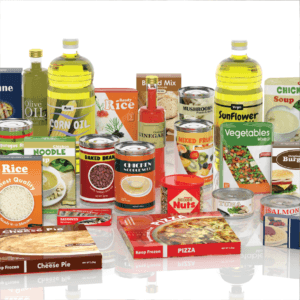
Things to Consider When Getting Listed at Retail
Congratulations on securing your first retail listing as a food manufacturer! Getting your products on the shelves of a retail store is a significant achievement. Here are some important things to consider to ensure a successful launch and long-term success:
- Product Presentation and Packaging: Your product packaging plays a crucial role in attracting customers and conveying the value of your brand. Ensure that your packaging is eye-catching, informative, and complies with all labelling regulations. It should also protect the product during transportation and storage.
- Pricing Strategy: Set a competitive yet profitable price for your products. Consider factors like production costs, competitor pricing, and the retailer’s pricing policies. Striking the right balance is essential to attract customers while maintaining healthy margins.
- Distribution and Logistics: Work closely with the retailer to understand their distribution and logistics requirements. Ensure that you have a reliable supply chain in place to meet the retailer’s demands promptly and consistently.
- Marketing and Promotions: Collaborate with the retailer on marketing and promotional activities to drive sales. This could include in-store displays, promotional pricing, sampling events, and social media campaigns. An effective marketing plan can increase product visibility and attract more customers.
- Inventory Management: Stay on top of your inventory levels to avoid stockouts or overstocking issues. Maintaining proper inventory management is crucial to meeting demand and keeping the shelves stocked at all times.
- Retailer Relationships: Cultivate a positive and professional relationship with the retail buyer and store staff. Regular communication and responsiveness are essential for building trust and addressing any concerns or challenges that may arise.
- Quality Control and Compliance: Consistently deliver high-quality products that meet all relevant food safety and regulatory standards. Retailers expect suppliers to adhere to strict quality control measures to ensure customer satisfaction and compliance with regulations. If there is a problem you can be delisted, but you may also be charged a fee by the retailer to cover their costs.
- Merchandising: Work with the retailer to ensure that your products are well-merchandised on the shelves. Consider the product’s positioning, shelf space allocation, and any point-of-sale materials that can draw customers’ attention.
- Sales Data Analysis: Analyze sales data regularly to understand product performance and identify trends. This information can help you make data-driven decisions to improve sales and make necessary adjustments.
- Feedback and Continuous Improvement: Be open to feedback from the retailer and customers. Listen to their suggestions and use them to continuously improve your products and services.
- Legal and Contractual Obligations: Review and understand the terms of the retailer’s contract, including payment terms, return policies, and exclusivity clauses. Ensure compliance with all legal and contractual obligations. Having a Corporate lawyer can be important in this process.
- Scaling and Capacity: Be prepared for potential increased demand once your products are on retail shelves. Ensure that your production capacity can meet the growing needs of the market. If you can’t scale quickly this can often make the difference as to your opportunity to stay on the shelf.
Remember that successfully launching your products in retail is just the beginning. Continuously monitor and adapt your strategy to stay competitive and capitalize on new opportunities. Building solid relationships with retailers and delivering consistent quality will help you secure more listings and expand your market presence over time.
Food Biz Mentoring Think Tank 12-week Start-Up Strong Program will give you ideas and insights on how best to navigate retail opportunities that best fit your brand.
